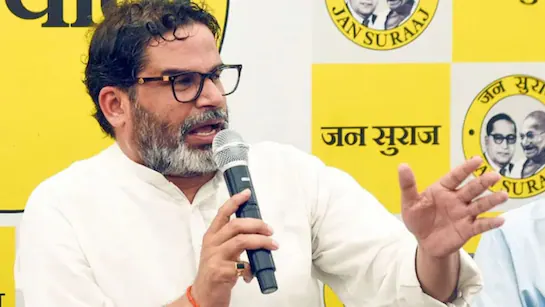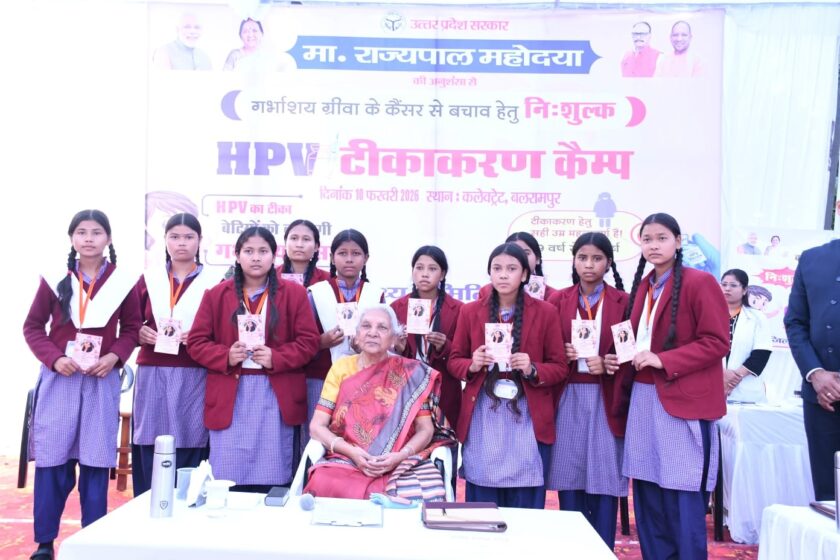Delhi | As Bihar gears up for its crucial Assembly Elections 2025, all eyes are on a new political force seeking to redefine the state’s deeply entrenched political culture — the Jan Suraaj Party, led by political strategist-turned-reformer Prashant Kishor. While traditional parties are locked in familiar alliances and rhetoric, Jan Suraaj’s arrival has injected a new kind of idealism into Bihar’s political bloodstream — one that emphasizes education, integrity, and informed leadership over caste equations and freebies.
What makes Jan Suraaj remarkable is not merely its emergence but its bold decision to contest all 243 seats in its maiden election — an unprecedented move in Bihar’s history. Even more striking is the profile of its candidates: educated professionals, former civil servants, scientists, academicians, mathematicians, and intellectuals. In a political climate often dominated by muscle and money power, this is a conscious attempt to reclaim politics for the qualified and the principled.
At the heart of this movement is Prashant Kishor, the celebrated strategist who once shaped electoral victories for leaders across the political spectrum — from Narendra Modi to the Congress, TMC, and JD(U). After years of crafting campaigns for others, Kishor has now turned his lens inward, choosing to dedicate his skills to transforming his home state. In 2022, he launched the Jan Suraaj campaign, embarking on a 3,000-kilometre padyatra to engage directly with the people of Bihar. Through this grassroots journey, he claims to have listened to the state’s aspirations and identified the root causes of its persistent backwardness.
Unlike traditional parties that rely on populist promises, Kishor’s approach is built on a single foundational belief — that education is the true engine of progress. He has sharply criticized Bihar’s dependence on “freebies” and “prohibition policies,” arguing instead for systemic investment in learning and civic responsibility. His rhetoric, often unsparing, targets not just corrupt politicians but also voters who trade their ballots for caste, religion, or ration benefits.
In an age of image-driven politics, Kishor has also mastered the art of narrative warfare. His interviews on television, YouTube, and digital media far outnumber those of many mainstream politicians. Unafraid of naming and shaming, he has publicly exposed the criminal backgrounds and educational deficits of rival candidates, calling for moral accountability in public life.
Political analysts are divided on how far Jan Suraaj can go. Some view it as a vote-splitting force, akin to Asaduddin Owaisi’s AIMIM, which may indirectly benefit the BJP-led NDA. Others believe it could eat into both the NDA and the Mahagathbandhan (Grand Alliance) vote banks by appealing to first-time voters and urban intelligentsia disillusioned with conventional politics. There are also comparisons to the Aam Aadmi Party’s early rise, with observers wondering if Jan Suraaj could similarly evolve into a pan-Indian reformist movement.

Still, Kishor himself remains cautious. “We will let the people decide whether Jan Suraaj belongs to the sky or the dust,” he recently remarked, asserting that his real contest is with the NDA’s governance model, not merely its candidates.
His entry has also forced an uncomfortable reflection within Bihar’s political establishment. The viral video message of Union Power Minister R.K. Singh, urging voters not to elect criminally tainted candidates like Deputy CM Samrat Choudhary or strongman Anant Singh, underscores a growing public disillusionment. When a senior BJP leader tells citizens to press NOTA rather than vote for corrupt nominees, it reflects a deeper crisis of credibility — one that Kishor’s movement seeks to address head-on.
In the larger context, Jan Suraaj represents more than a new party; it’s a question mark on the moral foundation of Indian democracy. Can clean politics survive in a system that rewards caste arithmetic and patronage? Can intellectuals, technocrats, and reformists replace the musclemen and moneybags who dominate electoral contests?
Prashant Kishor’s journey — from boardrooms of political strategy to the bylanes of Bihar — is a test of whether integrity can be electorally viable. His campaign may not immediately overhaul the system, but it has undeniably sparked a national conversation about what politics could and should be.
In a state long synonymous with poverty and caste-based politics, Jan Suraj’s rise is both a challenge and a promise — a challenge to the old order, and a promise that governance grounded in education, honesty, and vision might finally find its footing.










